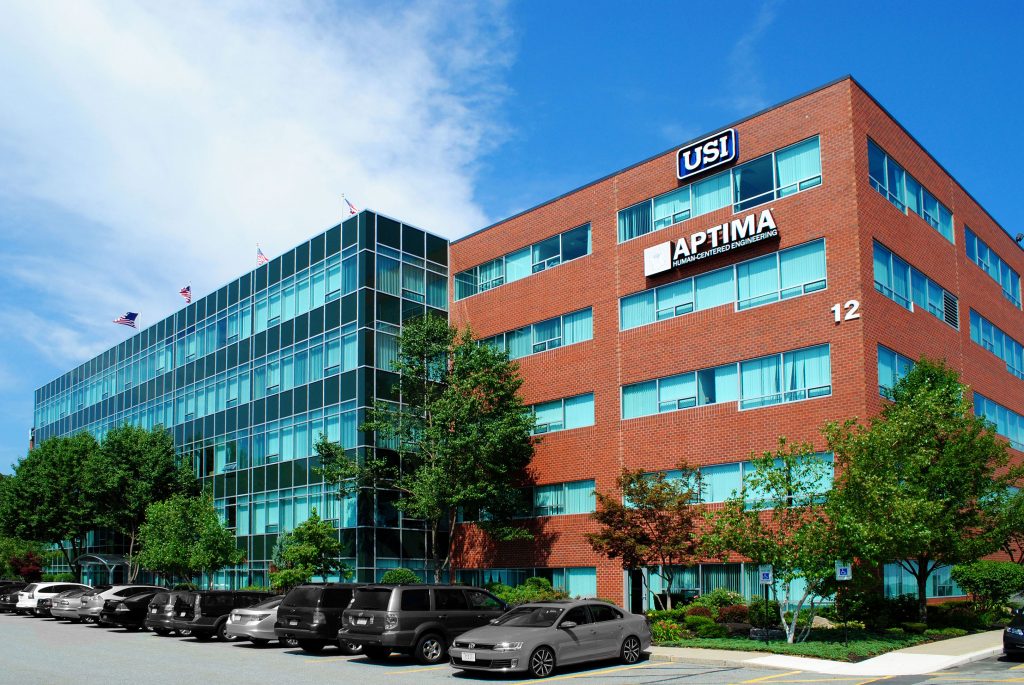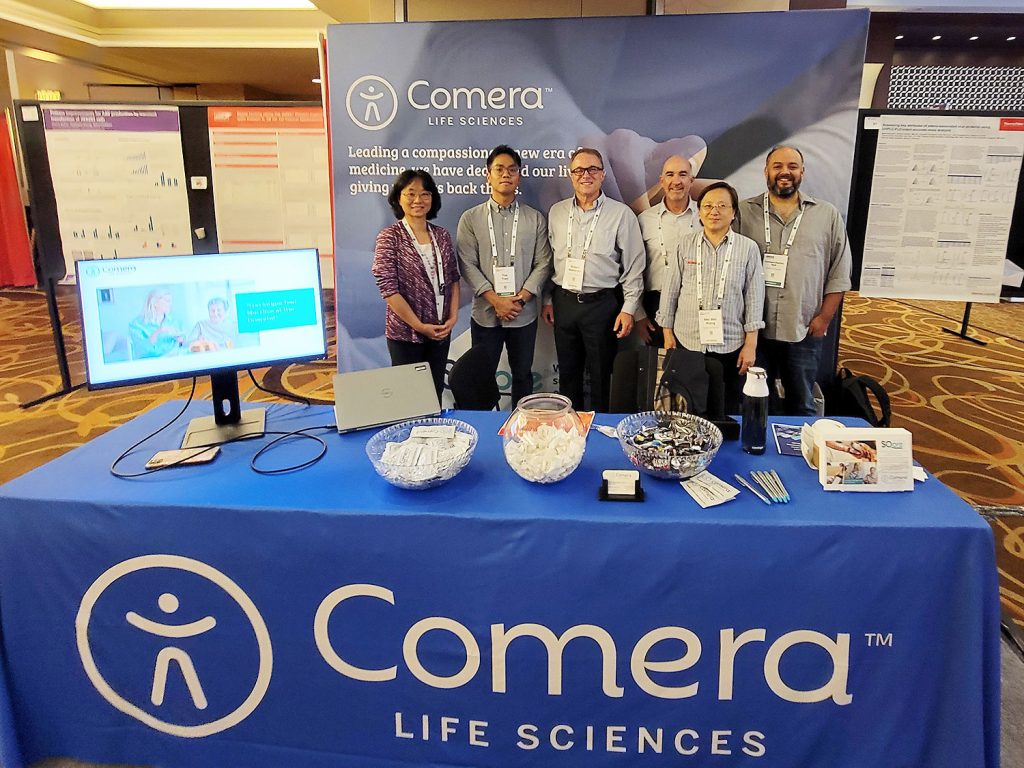Millions of patients with chronic conditions rely on biologics, but many of those medications are delivered through intravenous (IV) infusions. Often, treatment requires patients to travel to a distant hospital or infusion center for what can be a painful treatment that takes hours to administer.
Comera Life Sciences hopes to change that by formulating subcutaneous (SQ) injectables. Essentially, the company intends to turn intravenously injected or infused biologics into subcutaneously injected biologics, which patients can self-administer. “This has the potential to lower healthcare costs, improve patient quality of life, reduce outpatient treatment times, and give patients more freedom and independence,” says Jeffrey Hackman, Comera’s chairman and CEO.
To realize these possibilities, Comera is engaged in three research collaborations with leading pharma companies in oncology, rare diseases, and biosimilars. Citing “competitive reasons,” Hackman is inclined to keep the details of the collaborations hush-hush. For example, he withholds even the names of Comera’s partners. He confides, however, that one partner “is a top 10 pharma company,” and that another “is one of the largest biosimilar companies in the world.”

Reducing viscosity
Foundational to Comera’s approach is the company’s SQore platform technology. SQore leverages proprietary techniques and incorporates specific excipients to decrease the viscosity of biologics. SQore, Hackman points out, reduces the potential for biologic molecules to aggregate. “When viscosity increases in a solution, the antibodies or proteins stick together,” he elaborates. “[Overly viscous formulations] are difficult to produce and administer with a syringe, and they can lead to processing inefficiencies that increase manufacturing costs.”
Comera has built a repertoire of over 200 excipients. Some of the excipients are novel and proprietary, but the lead excipient is a familiar substance: caffeine. According to preclinical data from last year’s SEQURUS-1 study, a caffeine excipient reduced the viscosity of two monoclonal antibody therapy formulations. One of the formulations was for ipilimumab, and the other was for infliximab. The study showed that caffeine did not affect the in vitro bioactivity of either biologic. Moreover, the study suggested that both biologics could be formulated as subcutaneous injectables. Data from a larger study, SEQURUS-2, will be available this autumn.
Advancing compassionate medicine
Comera was founded in 2014 as ReForm Biologics to indicate a focus on reformulations. The new name, announced this year, reflects a renewal of this focus, one that is meant to “bring about a compassionate new era in medicine.” According to Hackman, Comera’s co-founder David Soane, PhD, a former professor of chemical engineering at UC Berkeley, along with Zach Jonasson, PhD, a managing general partner at Phoenix Venture Partners, “had the idea and vision to build a company to transform biologics from intravenous infusions to subcutaneous injections by developing novel excipients.”
Hackman joined Comera in 2021 with the explicit goal of taking the company to the next level. “[In its early years, the company] probably lacked the ability to imagine the impact it could have,” he suggests. “But now the company realizes its mission is much bigger than just being a formulations expert and, in a sense, throwing our solutions over the wall (to our clients). We also can be part of the answer. Developing our own pipeline changed the face of the company.”
“I truly believe that true medical advances don’t start from technology, or experience, or even genius,” Hackman relates. “They’re inspired by compassion.” His wife, Erin, battled breast cancer for a decade before passing away three years ago. Watching the painful chemotherapy and later immunotherapy infusions “was incredibly impactful for me and our five kids,” he shares. “I made a promise to my kids that their mom’s passing would continue to motivate me to help patients get better and more effective treatments. So, that’s why I’m here.
“When I arrived, I met with our scientists, and they were so passionate about these patients and their own mission. It felt as if we were building a new era of medicine.”
At about the same time the company changed its name, Hackman began steering the company to a new goal: the creation of an in-house reformulation pipeline. To fund discovery and development, he took the company public in May 2022.
Answering the call for new excipients
“In 2021, 7 of the top 10 pharmaceutical products in the world were biologics, but delivering them subcutaneously has been hard because of the drug concentrations,” Hackman notes. “Last year, even the FDA issued a call for novel excipients by launching a pilot program to allow excipient manufacturers to obtain FDA review of their excipients prior to even getting them into formulations.”
Comera’s SQore platform could expedite the reformulation of biologics. The company’s latest presentation notes that excipients developed on this platform have no antibody binding tendencies, cause no structural or chemical changes, remain in solution without forming particulates, and appear to have no effect on monoclonal antibody absorption or distribution after administration.
Exploring new opportunities
Comera’s reformulations expertise positions the company as a likely partner for many biologics manufacturers, helping it access what some analysts predict will become a $422 billion market in 2025. Interest in injectable biologics is there, too. According to Comera’s own research, 70% of physicians are interested in seeing subcutaneous formulations become alternatives to existing formulations, specifically in cases where the only option is to administered biologics intravenously.
To address the growing interest in subcutaneous formulations, Comera is applying new technological capabilities. “We have the potential to change the way patients receive life-saving medications,” Hackman declares. “[By emulating] the development of the EpiPen or insulin pumps, we can find ways to help patients self-administer medications at home, work, or school.”
Hackman also stresses that Comera is an innovator. He points out that the company has two development programs to address unmet needs in large markets. The programs, CLS-001 and CLS-002, are for subcutaneous formulations of currently marketed biologics that target inflammatory bowel disease and immuno-oncology, respectively. Hackman expects to file investigational new drug (IND) applications for each in 2024. Market potential exceeds $500 million for each of these programs, with additional applications possible.
The bulk of Comera’s focus, however, is devoted to its collaborations. “That’s the most important work that we’re doing,” Hackman insists. “We have a strong platform, established partnerships, and a low cash burn, and we have an incredibly experienced team. Most important, we address a huge unmet need.

“We’re a small company. We want to continue to grow and to build a compassionate company on the foundation of good science. It’s worth the effort for patients and families. So, that’s where we’re headed.”




